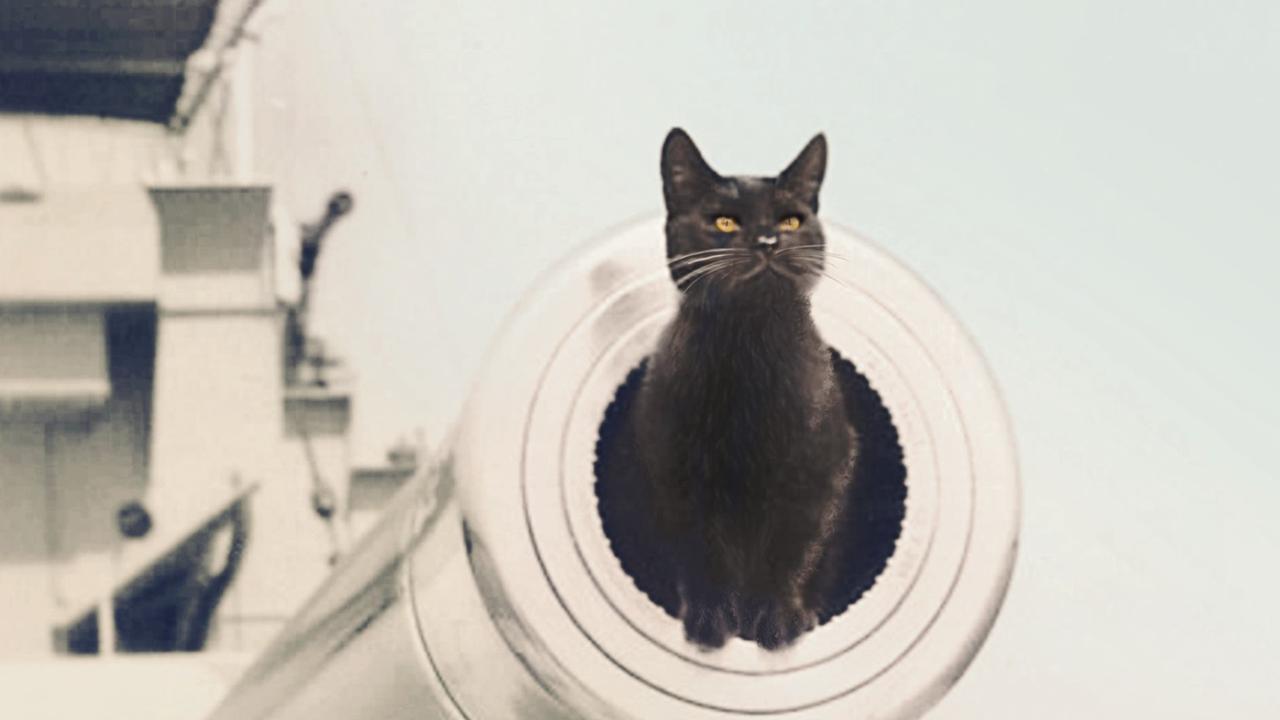Friend Xerxes tells the story of Boris the Cat, a companion animal on a solo cruise around the world.
His column is titled “The Absence of a Happy Ending.” With an added “[Reader alert: This column is a downer]”
Somewhere in the South Atlantic, Boris fell overboard, and was not seen again.
“When things go wrong, we’re told to have faith. As Julian of Norwich once assured us, ‘All shall be well, and all shall be well, and all manner of thing shall be well.’
“I wonder if Boris would agree with her.”
As though this advice was for cats. Anyone who’s had a cat as a kid could have told him, cats do not live long in any event.
So why this melodramatic reaction, particularly when men, women, and children are dying daily in Gaza, or the Ukraine, and gruesomely in Israel on October 7? And yet it is the unmet cat, who died many years ago, that occupies Xerxes’s thoughts?
Jung once said, sentimentality is a scaffolding concealing brutality. Hitler loved his dogs.
I fear we no longer care about humanity. Making much of “nature” and cats and the like is a scaffolding concealing our own brutality from ourselves, at times when in our hearts we know we are guilty of it. We reassure ourselves by manifesting exaggerated delicacy. Goodness! We wouldn’t swat a flea! We lament the death of every cat!
Death, after all, is every cat’s ending. “Death, a necessary end, will come when it will come.”
The conventional belief is that an animal’s consciousness, when it dies, simply ceases to be. Lights out. That is not tragic: it is neutral. Sad because this cat’s life was a few years shorter than it might have been?
Then where is the concern over aborted children?
Boris may have briefly felt panic. There is a Jewish prayer, “Lord, don’t let me die while I’m still alive.” I imagine that is a prayer against panic, against facing death unexpectedly. If so, Boris’s panic must have been brief. Cats are not renowned swimmers. A small furry animal in a turbulent sea?
And if this is Xerxes’s or his readers’ main concern, do they spare a thought for the terror of animals led to slaughter, whose meat they eat every day?
Xerxes then makes Boris's death a parable to suggest that we invented heaven to console ourselves, because we want a happy ending.
But that does not work. Xerxes probably knows this in his own heart. He has a Christian education. Animals, according to traditional Christian belief, based on Aristotle, do not go to heaven. If heaven were only wishful thinking, we would surely insist that Boris did, and we would have our happy ending. Why does Xerxes choose an example that does not work?
Because his real point is a concealed one. He wants to believe we are all like cats, and cease to be at death. That is his wish for a happy ending.
Because the alternative, as Xerxes neglects to note, is not heaven. All people do not go to heaven. In fact, in most traditional views of the afterlife, few do. There is an alternative destination, or perhaps two or three. Or, for Buddhists or Hindus, an infinite number of possible destinations, of future lives.
And moderns in general try hard not to believe in God or the afterlife, and insist that man is no better than an animal, a cat, and exalt nature, because of a guilty conscience, and terror at the just consequences of our actions.














No comments:
Post a Comment